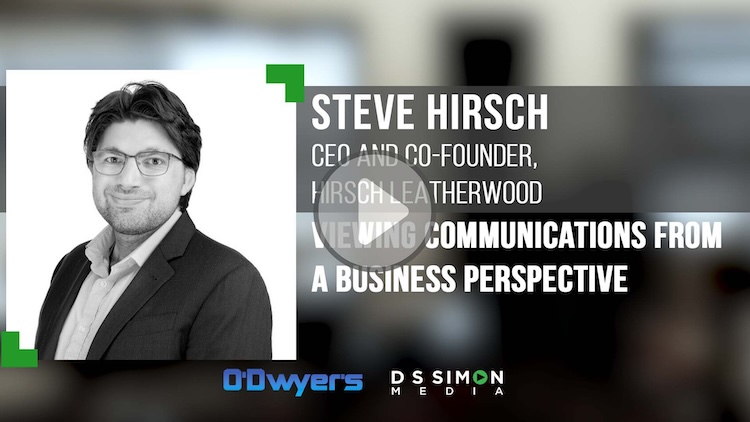 |
| Fraser Seitel |
The line between genius and madman is razor-thin.
On one hand, you can possess the Henry Ford-like brilliance to create a successful, attractive, superior new automobile and follow it up with a spaceship that flies to Mars. On the other hand, you can be so maniacal that you tear down, willfully, all you’ve created.
Behold the perplexing paradox that is Elon Musk.
Yes, he invented Tesla, the sleekest, fastest and most gorgeous car of all time.
Yes, he’s single-handedly wrecking the value of his once-thriving company and its shareholders, one of whom—in dismaying full disclosure—is me!
No, he never really intended to buy Twitter.
No, he had/has no clue what to do with the losing social network now that he’s stuck with it.
And no, there’s little chance that Twitter, the company, will avoid bankruptcy and that Musk, the individual, will avoid being forced to sell out at bargain-basement prices the only liquid currency he owns, Tesla stock, to repay his bulging Twitter debt.
And there’s also little doubt that the billionaire’s purchase of Twitter will go down in the annals of business decisions as “Elon Musk’s Folly,” one of the dumbest takeovers of all time.
But—and here’s the point—despite what outraged journalists and self-appointed free speech advocates have argued, the fact that Musk owns the private messaging site gives him every right to throw off that site any reporter he doesn’t like.
Sorry, New York Times and Washington Post and CNN and Keith Olbermann and Stephen King and AOC, but if he owns the company, then as long as he isn’t acting in a racist, sexist or antisemitic manner, he can toss your caboose off the site.
Musk’s initial decision to suspend from Twitter any journalist—who, through tweet or link, exposed the location of the Musk family—was met with great vitriol by reporters and politicians around the world.
The Times demanded a “satisfying explanation for this action.” The executive editor of the Post huffed the suspensions “undermine Elon Musk’s claim that he intends to run Twitter as a platform dedicated to free speech.”
But here’s why Musk is right and his critics are wrong.
First, while Twitter users, like the rest of us, are protected by Constitutional First Amendment Free Speech and Free Press clauses, Twitter users aren’t “journalists” in the classical sense, who are protected by media shield laws.
Rather, Twitter is now a private company, owned by one man, who can do with it what he wants, as long as it’s legal.
If media companies, free speech champions or human rights advocates don’t like what Musk is doing with Twitter, they can either take him to court or petition Congress to pass laws that treat blogs and social media as “journalists.”
Moreover, to most people, Twitter is meaningless. The vast majority of Americans—77 percent, according to the latest Pew Research data—don’t use Twitter. And of the less than one-quarter who do use the site regularly, the top 25 percent of those users produce 97 percent of all tweets.
And who are the top Twitter daily users? Journalists, 69 percent of whom report they use Twitter more than any other site. That compares with only 13 percent of U.S. adults who say they regularly get news from Twitter.
So, the point is that even though The New York Times and Washington Post and other major media regularly cite tweets as a major source of news and prevailing opinion, Twitter, in fact, is the very definition of an “elite” medium with little relevance to most people.
So, if Elon Musk wants to kick some reporter off his site, he’s totally within his rights to do so.
Second, journalists aren’t even “journalists” anymore. So why should they be accorded special privileges?
It used to be that objectivity and professional integrity were the attributes that separated journalists from the rest of us. Typical were the six elements of the Code of Ethics of the Radio Television Digital News Association: 1) public trust, 2) truthfulness, 3) fairness, 4) integrity, 5) independence and 6) accountability.
In other words, once upon a time, if you read it in The New York Times, you could be relatively certain the story had been produced by professional journalists, vetted by experienced editors and therefore produced with even-handedness and a minimum of political bias.
Today, where according to the paper’s own demographic data, 91 percent of Times’ readers identify as Democrats, the old rules of fairness and truthfulness no longer apply.
Typical is the Times' daily drumbeat of embarrassing “news” stories that fan the flames of an imaginary “national trend” that more and more firms are unionizing. To “prove” its case, the Times regularly reports on the unionization efforts at only two companies, Starbucks and Amazon. The reality in both cases, where most efforts to unionize have been thwarted by enlightened management adopting more pro-labor benefits, is rarely mentioned in Times’ stories. No wonder, according to most polls, less than half of Americans believe the Times is a “trustworthy news source.”
The reality in today’s world of journalism is that objectivity is out and political bias is in. So, the argument that journalists merit special privileges is increasingly more difficult to justify, primarily because …
Third, the media, sadly, are no longer considered “credible” sources of news by many Americans.
Credibility in the media—just like trust in most American institutions—continues to decline. According to the latest Pew Research:
Trust in national news outlets among all U.S. adults has descended to 61 percent, with 77 percent of Democrats and only 42 percent of Republicans expressing such trust.
Younger Americans under 30 now trust social media news sources as much as national media news sources.
Perhaps, most tellingly, while 76 percent of all American adults believe the news media have a responsibility to strive for “equal coverage” of all sides in reporting news, only 44 percent of U.S. journalists feel similarly.
So much for journalistic credibility.
In all fairness, when it comes to credibility, at this stage Elon Musk also commands little or none. But does the mad billionaire have the right to expel anyone he wants from his sinking social media site? Yes, he does.
***
Fraser P. Seitel has been a communications consultant, author and teacher for 40 years. He's the author of the Pearson text “The Practice of Public Relations,” now in its 14th edition, and co-author of “Rethinking Reputation” and “Idea Wise.” He may be reached directly at [email protected].










 Have a comment? Send it to
Have a comment? Send it to 
Dec. 23, 2022, by Bill Huey
Musk will probably flip Twitter to Bezos or Prince Al Waleed and make a slight profit. Until about a month ago, he could have sold it to Sam Bankman-Greed, as they share management and PR styles.
Whoever takes over would do well to segment the users into interest groups.